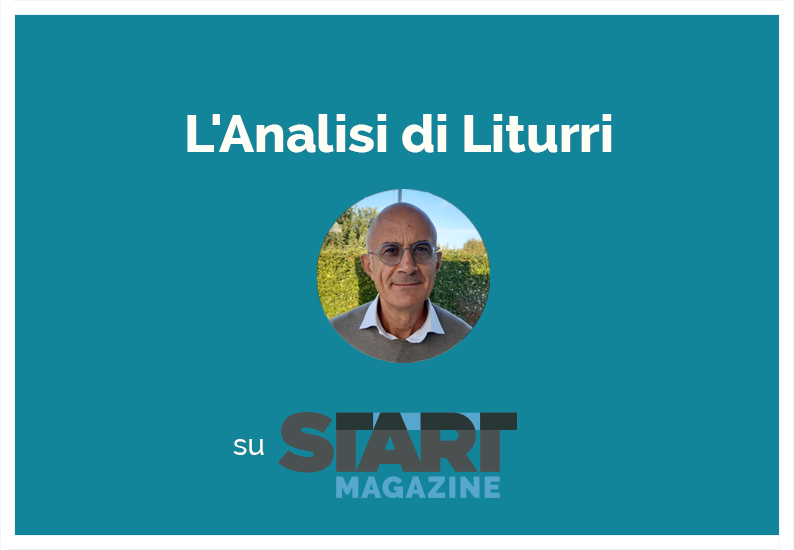All the somersaults (including by Draghi) on the Stability Pact

Giuseppe Liturri's comment
“ Pro-cyclical rules that aggravated the problems ”. These were the words with which on Wednesday 15 December, in the Chamber , Prime Minister Mario Draghi defined the Stability Pact and the set of rules that govern the budgetary policy of the EU states. It will be up to the French presidency in the first half of 2022 to adequately reform those rules that are incompatible with the public investments needed in the coming years, he added.
A little less than 24 hours later – almost as if Draghi had called the "free lair all" – the president of the European Parliament David Sassoli suddenly freed himself of a burden, declaring that "we cannot be caged in rule 3% […] enough with rigor and austerity. Europe needs a new project of hope, which can embody our Union, our values and our civilization ”.
Unless it is a case of homonymy, it is Draghi himself who on 3 September 2015 declared as president of the ECB that " the budget policies of the euro area countries should support economic growth while maintaining compliance with the Stability and Growth Pact ”. ECB whose bulletin at the end of December stated that "it is necessary to continue the efforts to consolidate public finances in full compliance with the stability and growth pact ".
There is no risk of homonymy also with regard to Sassoli who in November 2018 – with the Italian government being targeted by the Commission for having presented a 2019 budget with a deficit / GDP of 2.4%, which fell to 2.04% after 3 weeks in which the markets were left free by the ECB to operate the spread truncheon – he wondered about the " troubles we will face " and feared a fine of up to 0.5% of GDP and the suspension of structural funds.
We ask ourselves how we can support everything and the opposite of everything, not by simple quisque de populo but by members of political and economic institutions on which the future of millions of people depends. And this is not the case to invoke the, albeit legitimate, exemption from the change of mind. From 1997, and even more so after the 2012-2013 reform, the harmfulness of those rules was evident to any economist who had not been looking for a place in the sun between Rome and Brussels. The result was fourteen quarters of almost uninterrupted recession from 2012 to 2014 and four years of asphyxiated growth from 2015 to 2019, caused decisively by a primary budget surplus always between 1% and 2% of GDP, between the most "virtuous" of the EU. Not to mention the lunar “ output gap ” mechanism that forces us to reduce the deficit to prevent unemployment from falling below 9/10% and wages from rising too much.
Having supported this authentic junk of economic policy for years and until the beginning of the pandemic, would require, at the moment of awakening and the "discovery" of the harmfulness, a clear and honest act of apology.
Sorry to the millions of unemployed and new poor; sorry to the parents who could not even think of having children, bringing the birth rate from 2012 (coincidence, right?) to record levels; sorry to the entrepreneurs who endured record tax burdens and who sold businesses or crowded the bankruptcy sections of the courts; apologies to savers who, for the first time since 1936, saw their savings invested in bonds issued by banks swept away by a tsunami of bad loans.
After this dutiful act, we anxiously await the outcome of the action of all the newly electrocuted Saint Paul's on the road to Damascus and we consider the reform of the rules of the Stability Pact the real test for measuring Draghi's international stature. We await him without prejudice whatsoever at the test of the field, starting with the Eurosummit on Thursday in Brussels which however seems to have completely ignored the problem.
In the meantime, we are staying here to bite our hands because on Thursday the ECB declared that the public bonds purchased with the PEPP program will always be repurchased upon maturity at least until 2024. This means that about 1/3 of the Italian public debt is in the icebox for the next 3 years. As if it did not exist and we did not take advantage of it, giving up to push hard on the lever of the deficit , first and foremost tax reduction.
(Updated and expanded version of an article published in the newspaper La Verità)
This is a machine translation from Italian language of a post published on Start Magazine at the URL https://www.startmag.it/economia/mario-draghi-patto-stabilita/ on Sat, 18 Dec 2021 08:04:48 +0000.
